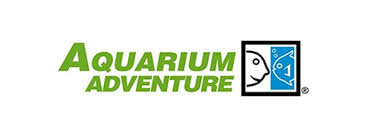Dealing with Common Fish Health Problems: Prevention and Managing Stressors
Maintaining a healthy aquarium is a labor of love, and ensuring the well-being of your aquatic inhabitants is paramount. Unfortunately, just like any living organisms, fish can be susceptible to various health problems, most often brought on by stress. Being able to prevent, identify and treat common aquarium ailments is a crucial skill for any responsible aquarist. In this guide, we'll explore some of the most prevalent fish health challenges and provide tips on how to prevent and manage them effectively.
1. Ich (White Spot Disease):
Symptoms: White spots resembling grains of salt on the fish's body, rapid gill movement, body scratching, hanging at the water surface and clamped fins. A parasite infection.
Prevention and Treatment:
· Maintain stable water conditions. Large fluctuations in temperature and pH levels are primary causes, along with elevated levels of ammonia and nitrites.
· Proper acclimation of fish from one environment to the new environment goes a long way in reducing stress and preventing health problems. Whenever possible, quarantine new fish before introducing them to your main tank.
· Use an effective ich treatment medication that contains either a good dye such as malachite green or a copper base solution.
2. Fin Rot:
Symptoms: Torn, frayed, or rotting fins, along with discolored or ragged edges. A bacterial infection.
Prevention and Treatment:
· Keep water conditions pristine with regular water changes and proper biological filtration.
· Avoid overcrowding and maintain appropriate stocking levels. Be sure to keep proper species together to limit aggressive territorial fighting.
· Administer medication specifically designed to treat fin rot, which should be an antibiotic. Antibiotics affect all types of bacteria, so keep a close eye on the “good” bacteria in your biological filter to prevent a sharp rise in ammonia or nitrites.
3. Velvet (Gold Dust Disease):
Symptoms: Fine, gold or rust-colored dust-like spots on the skin and gills, rapid gill movement, and lethargy. A parasite infection.
Prevention and Treatment:
· Like “Ich”. Maintain stable water conditions. Large fluctuations in temperature and pH levels are primary causes, along with elevated levels of ammonia and nitrites.
· Use an effective ich treatment medication that contains either a good dye such as malachite green or a copper base solution.
4. Columnaris (Mouth Fungus):
Symptoms: Cotton-like growths around the mouth, frayed fins, and ulcers on the skin. A Fungal infection.
Prevention and Treatment:
· Maintain high water quality with regular water changes and efficient biological filtration.
· Avoid stress by providing suitable hiding spots and maintaining appropriate stocking levels.
· Treat with an anti-fungal medication.
5. Dropsy:
Symptoms: Swollen abdomen, protruding scales, loss of appetite, and lethargy. Damaged swim bladder, not normally an infection.
Prevention and Treatment:
· Physical mishandling of the fish can damage/rupture the swim bladder.
· Deeper aquariums have more water pressure (which sometimes cause problems for the swim bladder), moving the afflicted fish to a shallow aquarium can occasionally alleviate the problem.
· Improper diet can also be a factor in creating havoc with the swim bladder, be sure to feed the appropriate diet per species.
6. Popeye:
Symptoms: Bulging or protruding eyes, often accompanied by cloudy or swollen tissue around the eyes. Called exophthalmos, usually a bacterial infection.
Prevention and Treatment:
· Maintain excellent water quality with regular water changes and proper biological filtration.
· Isolate affected fish and treat with appropriate antibiotic medication.
Conclusion: Vigilance and Swift Action
Preventing and managing fish stress requires vigilance, good husbandry practices, and prompt action. Regular observation of your fish behavior and eating habits, maintaining stable water conditions, and implementing proper acclimation and/or quarantine procedures for new arrivals are crucial steps in maintaining good fish health.
Remember, early detection and intervention are key to a successful healthy aquarium. If you're unsure about the unusual behavior or appearance of your fish, seek advice from experienced aquarists or aquatic biologists.
